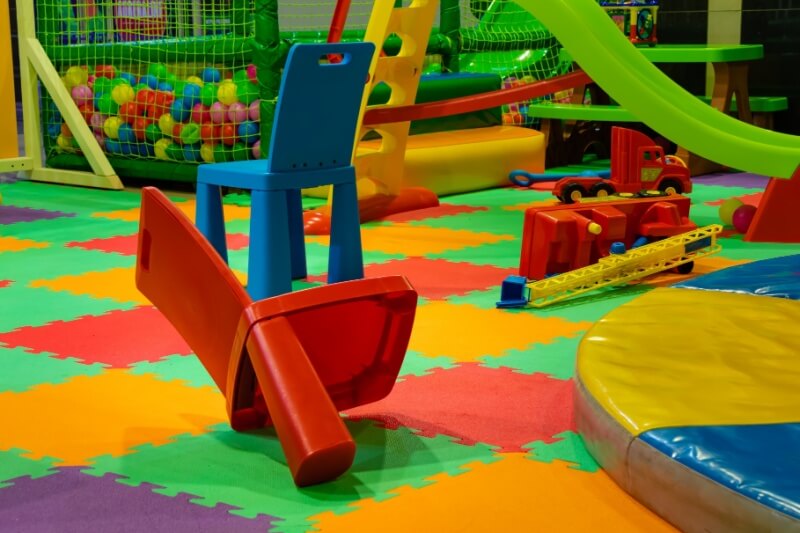Parents, let’s be honest, parenting is managing everything and anything all at once.
You’re juggling homework, snack time, emotional meltdowns, and, oh yes, keeping them safe.
We childproof the house, buy the playmats, and remind our little adventurers the dangers of crossing the street without looking both ways.
But what about the risks we don’t see?
Recent tragedies, like the heartbreaking incident in Penang where a teenager lost his life due to electrocution while charging his phone on an express bus, shake us to our core.
These incidents aren’t just a parent’s worst nightmare, they’re a wake up call.
How can we protect our kids from dangers we can’t always anticipate?
How do we stay ahead of risks in spaces we assume are safe?
From one parent to another, lets dive into how we can better prepare ourselves and our children for the unexpected.
The Everyday Spaces We Overlook

Here’s the thing about hidden dangers, they don’t announce themselves.
That charging socket on the bus?
We’d only think of it as a convenience, never a potential hazard.
The indoor playground at the mall?
It looks clean, fun and ready to entertain our little ones, until you spot the loose bolts or sharp edges.
The reality is, risks hide in plain sight.
Electrical outlets, poorly maintained public facilities, unstable furniture in restaurants, or even slippery tiles in a washroom.
These are things we don’t think about until something goes wrong.
The takeaway?
Don’t take anything for granted.
A quick scan of your surroundings can go a long way.
And before anyone tells you to take a chill pill, no, you are not being paranoid.
It’s about being aware and keeping our families safe.
Trust Your Gut (and Teach Your Kids to Do the Same)
We’ve all had that gut feeling, that pang when something does not feel very right.
Its a complimentary senses add-on when you become parents.
So, no matter how tiny it may be, trust your instincts because they’re usually spot on.
And here’s the most important one: teach your kids to trust theirs, too.
Encourage them to speak up if they feel uncomfortable or notice something unusual.
The more we empower them to listen to that inner voice, the more likely they’ll be to avoid potential dangers when we’re not around to supervise.
Family Safe Word: A Secret Signal for Safety
One simple yet powerful tool you can teach your kids is a family safe word.
It’s like having a secret code that only you and your kids know, used in situations where safety might be compromised.
For instance, if someone unfamiliar claims, “Your parents sent me to pick you up”, your child can ask for the family safe word.
If the person doesn’t know it, they know to walk away or alert an adult they trust.
A safe word adds an extra layer of security and empowers your child to navigate tricky situations with confidence.
Teaching the ‘Ask First’ Rule
Kids are naturally drawn to bright, shiny or exciting things.
A new toy in a store, a cute cat at the park, or even a vending machine blinking with lights and loud music.
But it’s crucial to teach them not to rush toward anything that catches their eye.
Explain that before they run to explore, they need to pause, think, and ask for permission.
Encourage them to say, “Mummy, can you come with me?” or “Daddy, I want to check that out, can we go together?”
This simple habit not only keeps them safe but also helps you stay in the loop about what’s capturing their attention.
Equip Them with Quick Response Skills
Unfortunately, mummies and daddies, no matter how vigilant we are, we can’t always be there.
That’s why teaching our kids how to react in emergencies is key.
Break it down into simple steps they can remember:
- Stay calm: Encourage them to take a deep breath if something feels wrong.
- Find help: Teach them to identify safe adults, like security guards or staff members.
- Alert others: Whether it’s calling for help or notifying someone, they should know it’s okay to let an adult know they’re lost.
Lead by Example
Kids watch everything we do, even when we think they’re not paying attention.
If they see us double checking safety features, avoiding risky situations, or calmly handling a potential hazard, they’ll learn to do the same.
Remember, we’re their first teachers.
Modeling safe behaviour isn’t just about keeping them out of harm’s way now, it’s setting them up with habits they’ll hopefully carry into adulthood.
Setting Clear Boundaries
We’ve all heard the phrase don’t talk to strangers, but it’s worth revisiting time and time again.
Kids need to understand that no matter how kind or trustworthy someone may seem, they should never engage in conversation with someone they don’t know.
This is especially important if the person asks for help or offers something enticing, like candy or a toy.
Teach your kids to politely but firmly ignore strangers and immediately find you or another trusted adult if they feel unsure.
Role-playing these scenarios at home can help them practice how to react calmly and confidently.
By reinforcing these lessons, we give our kids the tools to stay safe while navigating the big, exciting world around them.
Practice Self Compassion
We’ve all been there.
We try our hardest to keep our little ones safe but sometimes they still stumble and fall.
We may blame ourselves and stress that we should have tried harder or done more.
However, when all is said and done, here is something we don’t talk about enough.
Even when we do everything right, things can still happen.
And when they do, it’s easy to spiral into guilt and what-ifs.
But mummies, hear me out, we are all doing our best. None of us can predict every danger or prevent every mishap.
What we can do is learn, adapt, and keep showing up for our kids – no matter what.
So give yourself some grace.
You’ve likely heard this a million times and you will be hearing it again: parenting isn’t about being perfect.
It’s about being present, doing your best, and loving your kids fiercely through it all.
Stay Vigilant, Stay Connected
Parenting in today’s world isn’t easy.
Hidden dangers are everywhere, and the weight of keeping our little ones safe can feel overwhelming.
But together, as a community of parents, we can share knowledge, stay informed, and support each other through the journey.
Next time you’re out in the world with your kids, take a moment to scan your surroundings, trust your gut, and teach your little ones to do the same.
And most importantly, remember, you’re not alone in this.
We’re all just trying to raise happy, healthy kids in a world full of uncertainties.
You’ve got this, parents!
Disclaimer: The information provided in this article is for informational purposes only and should not be considered as medical advice from Motherhood. For any health-related concerns, it is advisable to consult with a qualified healthcare professional or medical practitioner.
For more insightful stories and fun recipes, stay tuned to Motherhood Story!
